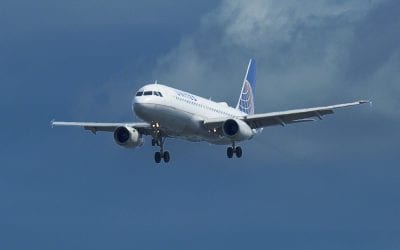Much of what affects airfares happens almost in secret. Really, it isn’t in secret, but consumers without any representation in Washington are left high and dry when it comes to airline antitrust immunity. An example of the inside politics brawl going on in DC among consumers, network airlines and other airlines is the scramble for routes to Mexico, and the request for antitrust immunity from Delta Airlines and AeroMexico.
After years of growth in aviation travel to Europe and the growth of airline alliances serving transatlantic routes, once smaller airlines, like JetBlue and Southwest, are working to develop routes into Mexico and the Caribbean. These customer-friendly, low cost airlines are coming up against an almost monopolistic cabal of network carriers — American, Delta and United — that have controlled the international market for years.
Today’s aviation antitrust enforcement
Consumers believe that the most important actions in terms of antitrust protection come from the Department of Justice (DOJ) when it reviews major mergers such as the United/Continental merger or the corporate marriage of American Airlines and US Airways. However, with the airline world, DOJ isn’t the only player in antitrust.
The Department of Transportation (DOT) and the Federal Aviation Administration (FAA) both have responsibilities. DOT is responsible for granting antitrust immunity to airline partners. This a like a merger, but without any exchange of stock or hassles with international law. The FAA is focused on maintaining slot control at some US airports. These controls are extremely important for our system.
For example, in the New York City area, more than 75 percent of all take-off and landing slots at LaGuardia and JFK are controlled by three airlines — Delta, American and JetBlue. This is not a good situation for consumers when competition is stifled and controlled by three airlines. The two major network carriers serving 77 percent of the traffic in and out of LaGuardia use that control to keep out competitors and to divide the market.
DOT gets around antitrust rules by granting immunity for collusive practices
It would appear that a dozen airlines are flying across the Atlantic on a daily basis. However, in fact, the truth is that these airlines are part of three “alliances” that are allowed to coordinate their flights, schedules, airfares. These airline alliances also split their profits.
In other words, what appears to be a competitive market of many airlines is a tightly controlled group of three airline alliances that fly about 80 percent of transatlantic traffic. This legal cabal has kept international airfares high because of the lack of competition, even with plunging jet fuel prices.
Now, DOT is studying an application from two alliance partners — Delta Air Lines and AeroMexico — that fly between the US and Mexico for similar permission to collude against the interests of the American public. If such permission to avoid antitrust rules is granted, it will be the first time in the history of aviation that such “acceptable collusion” will be condoned between countries that are not signatories of the open skies treaty.
A Delta/AeroMexico antitrust immunity grant will give them 50 percent of the takeoff and landing slots at Mexico City airport.
It is breathtaking to believe that DOT is even considering the ATI grant for these two airlines. The Mexico City slot system is impossible to understand and the consolidation of market power that would be provided to Delta and AeroMexico is unprecedented. Plus, both Southwest Airlines and JetBlue Airways have been attempting to get acceptable, economically feasible slots to start competitive flights that will force Delta to lower pricing.
So far, the only available slots are either late at night, after 10 p.m. or very early, before 6 a.m. These provide no possibilities of connecting flights.
Without the possibility of competition, DOT should not even consider antitrust immunity. It should be rejected immediately. However, that is not the case. There is currently a docket opened where Delta has requested antitrust immunity together with AeroMexico. Travelers United, the only consumer group focused on travel policy, has filed comments against such antitrust immunity grant.
This consideration of the Delta Air Line request for immunity brings to light the entire sordid antitrust immunity system that, today, plagues the airline international marketplace. In their comments, Travelers United notes:
Travelers United urges the Department not to add another anti-consumer, anticompetitive, metal-neutral ATI grant to the international aviation marketplace.
Plus, the Department should re-examine current ATI grants and airline alliances based on the most recent actions by airline alliance members that are erasing many of the stated reasons for airline alliances and ATI.
…
DOT should re-examine any claims of “public benefit” developed by ATI grants. The Department should clearly delineate the consumer benefits that were described in the original ATI applications.Not a single carrier in an immunized joint venture or DOT, itself, has ever published data showing that the US consumer is better off because of any ATI grants. Carriers that apply for ATI protection for their joint ventures make many promises. However, DOT has never demonstrated that these promises are actually delivered to consumers.
No more ATI grants should be allowed until the Department conducts a complete review of the current ATI grants. These “periodic reviews” were included in the original ATI grants. Travelers United respectfully requests that these promised periodic reviews be completed and the continuing “public interest” be confirmed prior to any new ATI actions by DOT.
Now, consumers await DOT’s decision. Will they protect the American public, as they should? Or, will they, once again, side with the interests of the airline powers that be.

Charlie Leocha is the President of Travelers United. He has been working in Washington, DC, for the past 14 years with Congress, the Department of Transportation, and industry stakeholders on travel issues. He was the first consumer representative to the Advisory Committee for Aviation Consumer Protections appointed by the Secretary of Transportation from 2012 through 2018.



